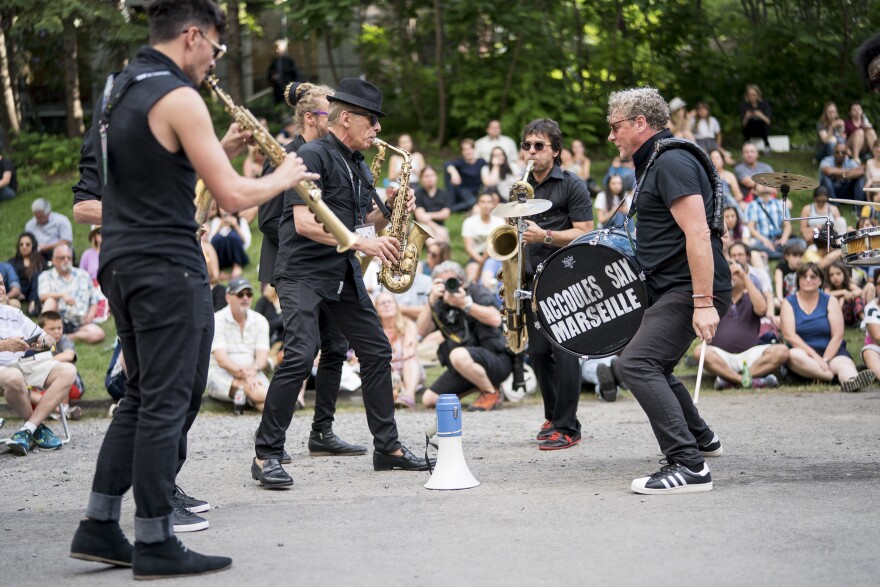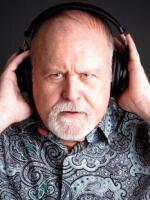I quit buying Cuban cigars in Montreal 20 years ago. U.S. Customs back then was just inside the airport entrance — and, before 9/11, security was not much more than a look at one’s passport. I’d brought back Cuban cigars before without an agent objecting, but one morning in the '90s an agent…objected. When he asked matter-of-factly if I’d bought any, I openly said “Yes. Two.”
“You have two choices,” he said with a shrug. “You can throw them in this trash can,” he said with a smile. “Or you can go out on the sidewalk and smoke them now.”
I opted to smoke them now — now being 9AM, them being one that cost $25 and one that cost $15. I stood on the sidewalk and I lighted them both. I have a photo somewhere of me puffing two cigars at once. Woozy.
I have not bought Cuban cigars in all the years since then. Cuban cigars cost much more now in Montreal, and nowadays Nicaraguan or Dominican cigars are just as good. Even better. And cheaper. And not contraband.
In the meantime, for 25 years at the Montreal jazzfest, I have enjoyed plenty of Cuban musicians.

Alfredo Rodriguez opened for the jazz/rock trio UZEB, an historic concert at the big hall. Very popular in the '70s and '80s, UZEB hadn’t played together since an enormous concert in the street my first year in Montreal, 1992.
Anticipation was palpable, and I wondered if the group’s faithful might be anxious as Rodriguez played — but Rodriguez rocked the house himself. His piano trio, without playing electrified like UZEB, was electrifying all the same. His piano often sounded as if melodic drums, bursting with Cuban rhythms. He was playing, he said, songs he grew up with. “Besame Mucho” was lovingly effervescent. And the audience was standing. Quickly. Loudly.
Harold Lopez-Nussa played in a trio at the Gesu. He also played songs that to me sounded as if he’d opened a music box from his childhood. Tinkling melodies. Charming, but with firecrackers from his brother Ruy at the drums. For one of the songs, Ruy and Harold played piano together. Laughing. Harold playing around in the bass notes. Ruy scampering in the treble. And then literally scampering around the piano, switching around on the keys. As they must have enjoyed playing when the brothers were kids in Cuba.
I enjoyed hanging with another talented Cuban pianist, Rafael Zaldivar. He joined me as one of the five judges for this year’s festival band competition.
Groups from across Canada compete each year. TD Bank, the jazzfest’s main sponsor, presents a $5,000 prize for the best band. Stingray, the satellite service, awards another $5,000 for the best composition.
This year, eight groups played, including one fronted by an expat Korean, Huu Bac, who played traditional Korean instruments. He bowed what looked like a one-stringed vertical violin. He picked and caressed what looked like a strip of bark, seemed not to have frets or keys, and sounded like an eery theremin. All the while, his group played what could be called Korean bop. Huu Bac was unique and a favorite of mine, but the band winner was the much more straightahead Allison Au, an alto saxist with a sound that reminded us of Jackie McLean. Au's quartet also won gigs at the jazzfest in Rimouski and at next year’s FIJM.

Several of the groups that have won the Gran Prix competition in the umpteen years I’ve been a judge were featured this year at L’Astral.
I remember when the electric Parc-X Trio first competed, the judges felt that they were good but not yet there. We requested that they come back the next year. They came back. They were even brighter. They won.
I remember when trumpeter Rachel Therrien won. When her performance outdoors was rained out, her group played indoors in the festival’s restaurant, and what was especially winning was her poise — playing through all the real-life jazz-life noise of clinking glasses, clanking dishes, and audience hub-bub. Therrien’s new group included tenor saxist Andre Leroux — with a robustly swinging sound I’ve always characterized as carnivorous — and a bateria of drums and marimbas. They played the colorful music from Therrien’s newest album, Pensamiento, music of or inspired by Afro-Colombian rhythms.
Every year at the festival, I hear artists playing music differently, playing jazz differently. Often rhythmically. Often theatrically. I call these artists “very Montreal” — and the group Shyre was the most “very” at the jazzfest. Sarah Rossy sings and plays an electronic keyboard. Pop songs, mostly French, mostly new — except for an update on a classic, Charles Trenet’s “La Mer.”
She’s backed by strings, a violin and a viola. They counterpointed. Sometimes lyrically. Sometimes squeakily. Shyre’s drummer from time to time played melodies. During one song, she dumped odds and ends onto the stage, played miscellaneous licks, and even danced a little. An actual dancer appeared as if physically echoing the music. Or she’d dance around with Sarah Rossy, on one song in an erotic pas de deux, as if lovers unable to connect. Dramatic as the songs could become, all of Shyre's show was serious fun.

Not to forget an annual (and very much fun) ritual of mine every festival. Streetnix is a quintet that's come together 30+ years and played around Place des Arts, in recent years on the street with the fountains. Jennifer Bell plays mostly alto sax and intros the tunes. She’s joined by cats playing trumpet, trombone, tuba, and drums. Though the feeling as they play sounds like a New Orleans marching band, they play classic jazz and song all across the musical spectrum. The Original Dixieland Jass Band meets Alice Cooper. “Livery Stable Blues” and “School’s Out” equally charming and swinging. Edgar Winter’s “Frankenstein” also romped, and “La Vie en Rose” sweetly spotlighted the trumpet of Bill Mahar.
Half the fun is enjoying the crowd enjoying the band. Little kids, fascinated by the trombone, were looking so closely they were almost bopped by the slide. A blind elder, wrapped in a red tarp, looked enraptured as he smiled and (sort of) danced. Perfect climactically, tubist Christopher Smith sang une chanson juste, a song just right, “Goodbye Broadway, Hello Montreal.”



